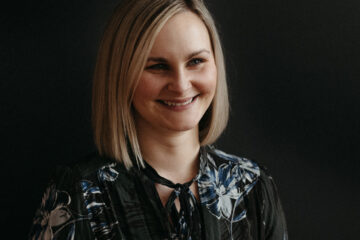By Seeta Lee
New Year’s resolutions are hard to avoid. A change in the calendar brings a refreshing opportunity to say, “This is when I finally do the thing!” Sadly, diet culture, fatphobia and the wellness industries are all too aware of this urge to renew ourselves. They latch onto our hope with a barrage of advertisements, telling us to save $50 on new member fees at the gym or get a month free on that trendy diet that pretends it isn’t a diet.
While seasonal depression and winter weather may make January the most depressing month of the year, this deluge of external pressure to change ourselves and our bodies doesn’t help. That whole “new year, new you” thing is nonsense, and — to borrow a word from people way younger than me — it’s time we yeeted it.
The status quo of New Year’s resolutions is brutal to our mental health. Starting the year thinking, “I need to change who I am” isn’t just depressing, it’s also unattainable. So, what if we resolved to understand, hear and respect our bodies instead? I’m not suggesting fluffy body-positive platitudes that we forget as soon as we scroll by them on social media. If we’ve long struggled with body image issues, body positivity is as far off as the typical New Year’s resolutions. What I propose instead is a three-pronged approach using boundaries, body acceptance and self-compassion.
A major problem with learning to accept our bodies is what other people say. We’re coming out of “The Year of Ozempic.” If we were fat before Ozempic, we were urged to lose weight. If we lost weight, people speculated (with shame) that we used Ozempic. If we used Ozempic or similar pharmaceuticals to lose weight, we were taking “the easy way out.”
Yet absolutely none of that is anyone else’s business. Our body size does not determine our worth. Our medical information is private for a reason. And our bodies are not up for discussion.
In fact, that’s the New Year’s resolution we could set to protect our mental health. Any time someone asks us about our bodies, we can practice saying, “My body is not up for discussion.” If that feels too confrontational, we can opt to say things like, “That makes me uncomfortable,” “Let’s change the subject,” “My body size isn’t all that interesting,” and my personal favorite, “What an embarrassing thing to ask!” We can also resolve to practice awkward silence. We’re not obligated to respond to anyone talking about our bodies. When the inevitable comments in the work cafeteria about eating cake being bad come up, we can use the moment to reflect on why anyone ever thought eating cake was a reflection of our moral fiber. We can simply refuse to participate.
I’ll admit that us people pleasers struggle with boundaries, so if practicing that boundary isn’t feasible, we can learn to hear, understand and respect our bodies. Specifically, we might ask why we consistently feel tired at 2 p.m. every day or why we crave potato chips and party dip. (Blue lid forever. If you know, you know.) We might do mirror work in which we see our bodies as they are without the goal of making them look better, which is why we usually look in the mirror. Or we might resolve to name something about our bodies that we take for granted.
As a 40-something with aging and wonky knees, I wish I’d appreciated walking without pain before the pain ever started. It feels a little silly at first to say in my nightly journal that I’m grateful I can still walk, but when I understand the gravity of how suddenly the ability to walk could end, I feel a lot more respect for my legs and feet.
More than anything, though, is the need to strengthen the relationship between our mental health and our bodies. This is best done through self-compassion. Kristin Neff, the leading self-compassion expert, suggests a self-compassion break that we can turn into a three-part mantra. In it, we recognize something that causes us pain, be it mental or physical. Next, we contextualize said pain as part of our human experience. Lastly, we show ourselves compassion just as we might show a friend who is in pain.
Take, for example, those who struggle with chronic pain like fibromyalgia. Each day is dictated by how their bodies are feeling. When someone has a flare-up that lasts a few days or weeks, both their physical and mental health suffers. Beating themselves up mentally isn’t going to improve the situation or the pain. Thus, self-compassion — giving themselves grace and rest — eases the suffering. They might practice saying this: “I notice my body is in pain today. I’m struggling like so many other chronic pain sufferers. I’m going to give my body what feels best today.” Practicing this mindset and mantra is considerably more accessible than paying $150 a month to a fitness club each month.
Our bodies are not binaries. We don’t have to love or hate them. We don’t have to fix them or forget them. We aren’t broken or functioning. Gym membership sales and diet discounts aren’t going to transform us. Jan. 1 doesn’t require a drastic proclamation to become someone we aren’t. Rather, it’s an opportunity to learn about the bodies we’re already in and resolve to embrace what we’ve already got.
Seeta Lee is a writer and educator who challenges the status quo.


